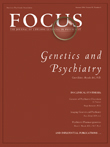Pharmacogenomics: Bench to Bedside
Abstract
Pharmacogenetics is the study of the role of inheritance in inter-individual variation in drug response. Since its origins in the mid-twentieth century, a major driving force in pharmacogenetics research has been the promise of individualized drug therapy to maximize drug efficacy and minimize drug toxicity. In recent years, the convergence of advances in pharmacogenetics with rapid developments in human genomics has resulted in the evolution of pharmacogenetics into pharmacogenomics, and led to increasing enthusiasm for the “translation” of this evolving discipline into clinical practice. Here, we briefly summarize the development of pharmacogenetics and pharmacogenomics, and then discuss the key factors that have had an influence on—and will continue to affect—the translation of pharmacogenomics from the research bench to the bedside, highlighting the challenges that need to be addressed to achieve this goal.



